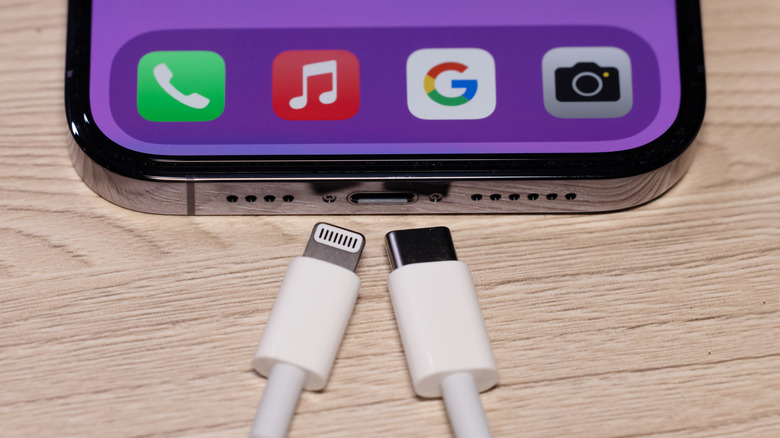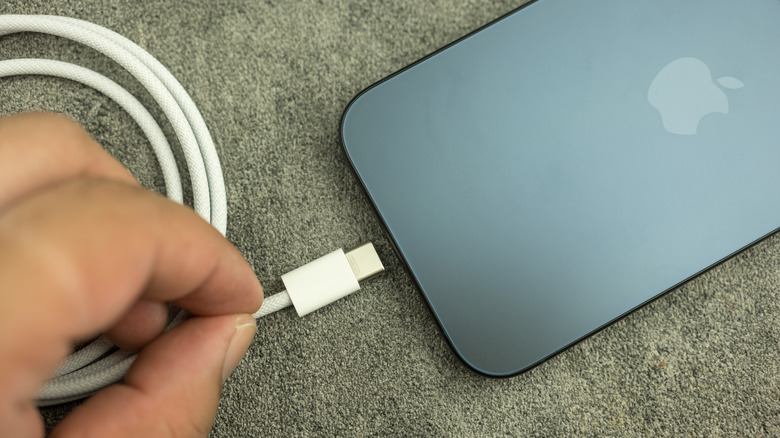Is It Safe To Share An iPhone Charger With Someone Else?
It's happened to the best of us. You're out and need to charge your iPhone, but you left your charger at home. If you're lucky enough, someone will let you borrow their charger for the time being, or you find a public charging station that will get your device up and running. To many, it's a seemingly harmless action that's convenient and not worth thinking twice about. Yet others may be concerned that such an act may leave their device exposed to something far worse than an empty battery.
In recent years, numerous sources have popped up warning against using used chargers, such as those available at public charging stations. These sources often present how easily data hackers could potentially gain access to your device using chargers that look no different than your own. Among these is a video uploaded in October 2024 to Instagram by influencer Ryan Montgomery (@0day), which has over 600,000 views as of this writing. In the clip, Montgomery demonstrated how an identical yet corrupted iPhone charger plugged into a computer could load the device's data with little effort.
It's understandable to believe that such an act, commonly referred to as "juice jacking," is a threat with consequences on the same level as what can occur when you do the wrong things on a public Wi-Fi network. In truth, most of the news surrounding this phenomenon has been blown out of proportion, and, for the most part, there's nothing to worry about when using an iPhone charger that isn't yours.
An iPhone's safety features make it near impossible for juice-jacking to occur
While there's always a chance that highly-targeted individuals such as journalists and political activists may run into juice jacking and similar data-stealing practices, most average individuals have no need to worry about being given a malicious charger. In fact, there has yet to be a recorded instance of this occurring in any public space. The truth is that stealing data from a modern iPhone is not as simple as some make it out to be, thanks to the many protective adaptations built into the device.
If you've ever connected your iPhone to a computer's USB port, you'll see a message pop up asking if you trust the source. This is because laptops and computers act as a power source while also being able to transfer data. Anytime your iPhone detects such a source, it will inform you that your data is accessible and won't charge until you give it the OK. The fact that most charging stations and outlets don't have these capabilities built in makes it even less likely that you'd ever run into such a scenario.
For a hacker to pull off such a feat on a traditional charging station would require dismantling the unit itself, which takes far more time and money than most are willing to put in. At the end of the day, investing in a trustworthy charger brand and paying attention to any messages your iPhone brings up are more than enough to keep your device and data free of issues.

